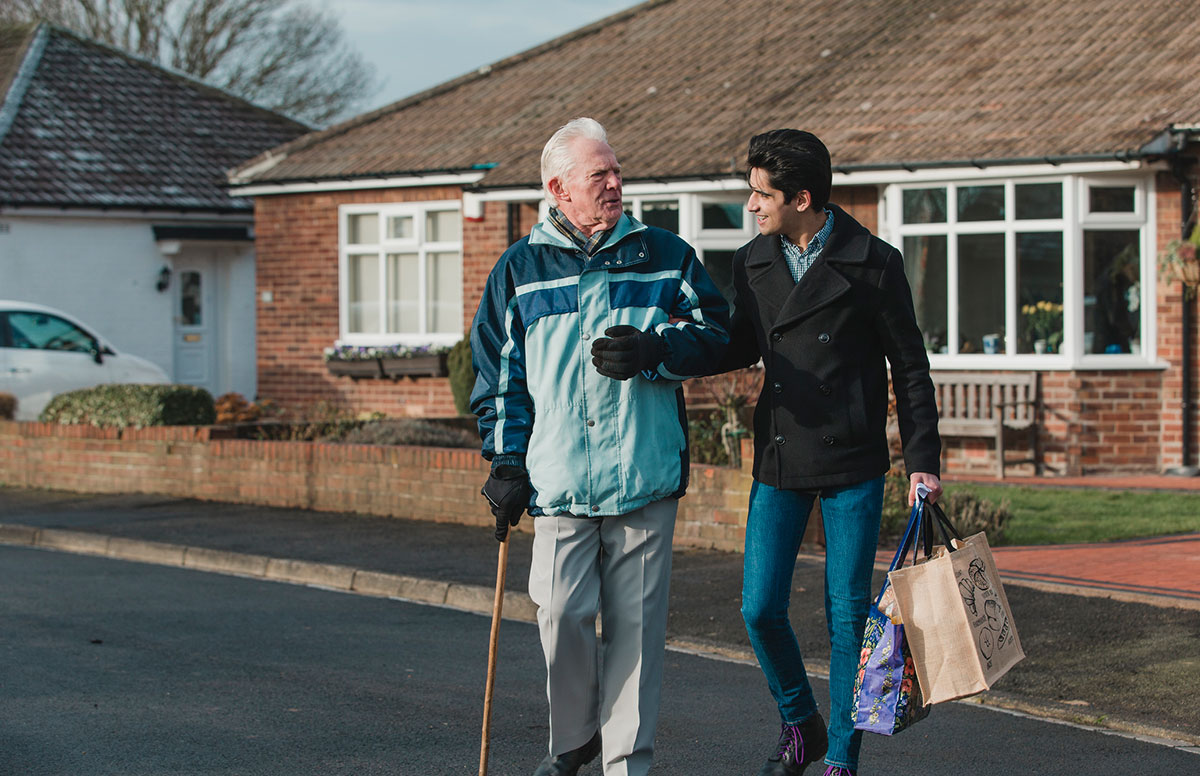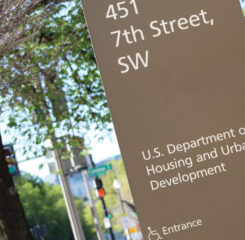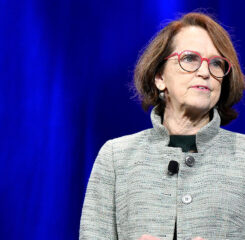ACL Releases National Family Caregiving Strategy with Detailed Policy Recommendations
The 100-page detailed report was developed jointly by the RAISE Family Caregivers and the Supporting Grandparents Raising Grandchildren advisory councils. Included in the report is a detailed breakdown of the current costs of caregiving, a review of who currently provides caregiving, and what caregivers do to support their loved ones.
LeadingAge’s LTSS Center was involved in developing and providing technical and practical assistance for the strategy. The strategy is open for comments starting October 1. Recognizing family caregivers as critical partners in the work LeadingAge members do to support older adults, a session on Sunday, October 16, 2022 from 1 – 2 p.m. at the LeadingAge annual meeting titled 99-A. Supporting Our Unpaid Caregiving Partners will discuss the topic in detail. Register here to attend.
The two councils recognized that no two caregiving situations are the same, but the groups worked to identified four key principles that must be reflected in all efforts to improve supports for family caregivers.
- Person- and family-centered approaches: As the US builds a system of coordinated and inter-related responses to the needs of family caregivers, it is important that family caregivers themselves—not the needs of systems or providers—remain the focal point of each encounter.
- Trauma and its impact: The experience of trauma, in the lives of caregivers and the people they support—including decades-old traumas—has an impact on the caregiving journey in ways that must be proactively addressed.
- Diversity, equity, inclusion and accessibility: While there are limited systems of support for family caregivers, the difficulties and impacts of caregiving are not equally distributed. Caregivers who represent unserved and underserved and/or marginalized communities frequently experience greater physical, emotional, and financial challenges associated with caregiving.
- The direct care workforce: Even though the Strategy focuses on family caregiving, the well-being of the nation’s 4 6 million professional caregivers (also known as direct care workers, direct service workforce, direct service providers, etc ) directly influences the ability of family caregivers to provide long-term support (PHI, 2018) Only through the development of a robust, well-trained, and well-paid direct care workforce can we ensure family caregivers and those they support have access to reliable, trusted, and affordable paid supports and assistance when and where they need it.
Also included in the report are detailed legislative and policy changes necessary to supporting family caregivers. This was so critical to the councils’ work that a supporting document was released along with the report listing nearly 350 actions that 15 federal agencies will take in the near term to begin to implement the strategy. Policies of note include:
- The Centers for Medicare and Medicaid Services (CMS) will develop and implement a caregiving module for the National Medicare Training (NMT) Program to achieve the goal of providing targeted training to NMT attendees of CMS programs benefitting caregivers in 2022.
- CMS will update the final discharge rule for hospital settings and Conditions of Participation for Discharge Planning at hospitals to include caregivers in the discharge planning process, as applicable.
- CMS’s DEHPG will explore Medicaid home and community-based services measure development focused on caregiver support and access to resources by fall 2023.
- CMS’s DEHPG will identify and report by fall 2023 on the ways state Medicaid agencies have expanded access to respite services under Medicaid through ARP section 9817.
- CMS will identify and report on, by fall 2023, the ways state Medicaid agencies have expanded access to strengthen the direct support workforce.
- CMS will continue to respond to Medicare beneficiary needs as it has during the COVID-19 pandemic, through establishment of the Nursing Home Resource Center, and surveyed beneficiaries through a supplement to the Medicare Current Beneficiary Survey to assess the impact of the public health emergency on beneficiaries.
- CMS’s OPOLE, in collaboration with CMS’s Office of Communications, will develop localized public messaging and outreach/training materials in 2022 detailing coverage for Respite Care and Home Care Services (for caregivers who want to be their family member’s home attendant). This will help achieve the goal of providing practical information to caregivers who desire a meaningful break from caregiving responsibilities.
- CMS’s OPOLE, in collaboration with CMS’s Office of Communications and regional executives at ACL, will develop localized public messaging and outreach/training materials in 2022 aimed at the caregiver audience to achieve the goal of improving outreach efforts to family caregivers and promoting access to services and supports. Relevant topics include durable medical equipment, respite care, home care services, and hospice.
- ACL’s Center for Innovation and Partnership (CIP) in collaboration with Housing and Services Resource Center partners–including CMS, ASPE, SAMHSA, and the Department of Housing and Urban Development (HUD)–will host by 2023 a learning collaborative with a group of states and communities to increase partnerships across disability, aging, health, and housing sector to increase access to affordable, accessible housing and services.
- ACL’s CIP and HUD will host a community of practice (COP) with public housing authorities through the Housing and Services Resource Center in 2022 to increase access to housing vouchers.

Most Recommended
October 15, 2025
 Shutdown Week Three: Impact of Ongoing Closure on Affordable Housing
Shutdown Week Three: Impact of Ongoing Closure on Affordable Housing
February 03, 2026
Fiscal Year (FY) Funding 2026
October 07, 2025
Immigrant Workforce Matching Program Brings Workforce Relief
Recently Added
February 10, 2026
 HUD Streamlines Section 202 PRAC Budget Approvals
HUD Streamlines Section 202 PRAC Budget Approvals
February 10, 2026



